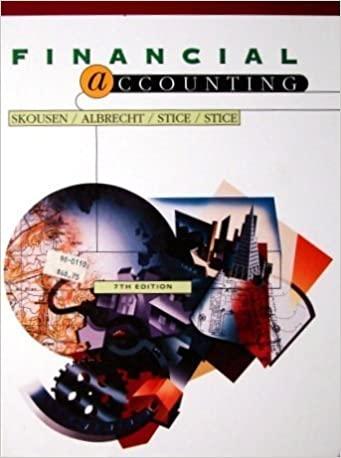Question
HomeSuites is a chain of all-suite, extended-stay hotel properties. The chain has 20 properties with an average of 150 rooms in each property. In year


HomeSuites is a chain of all-suite, extended-stay hotel properties. The chain has 20 properties with an average of 150 rooms in each property. In year 1, the occupancy rate (the number of rooms filled divided by the number of rooms available) was 75 percent, based on a 365-day year. The average room rate was $220 for a night. The basic unit of operation is the night, which is one room occupied for one night.
The operating income for year 1 is as follows:
| HomeSuites | |||
| Operating Income | |||
| Year 1 | |||
| Sales revenue | |||
| Lodging | $ | 138,040,000 | |
| Food & beverage | 22,995,000 | ||
| Miscellaneous | 11,497,500 | ||
| Total revenues | $ | 172,532,500 | |
| Costs | |||
| Labor | $ | 57,415,000 | |
| Food & beverage | 17,246,250 | ||
| Miscellaneous | 13,140,000 | ||
| Management | 2,507,000 | ||
| Utilities, etc. | 40,000,000 | ||
| Depreciation | 10,000,000 | ||
| Marketing | 10,100,000 | ||
| Other costs | 2,800,000 | ||
| Total costs | $ | 153,208,250 | |
| Operating profit | $ | 19,324,250 | |
In year 1, the average fixed labor cost was $407,000 per property. The remaining labor cost was variable with respect to the number of nights. Food and beverage cost and miscellaneous cost are all variable with respect to the number of nights. Utilities and depreciation are fixed for each property. The remaining costs (management, marketing, and other costs) are fixed for the firm.
At the beginning of year 2, HomeSuites will open four new properties with no change in the average number of rooms per property. The occupancy rate is expected to remain at 75 percent. Management has made the following additional assumptions for year 2:
The average room rate will increase by 8 percent.
Food and beverage revenues per night are expected to decline by 15 percent with no change in the cost.
The labor cost (both the fixed per property and variable portion) is not expected to change.
The miscellaneous cost for the room is expected to increase by 20 percent, with no change in the miscellaneous revenues per room.
Utilities and depreciation costs (per property) are forecast to remain unchanged.
Management costs will increase by 6 percent, and marketing costs will increase by 8 percent.
Other costs are not expected to change.
The managers of HomeSuites are considering different pricing strategies for year 2. Under the first strategy (High Price), they will work to maintain an average price of $290 per night. They realize that this will reduce demand and estimate that the occupancy rate will fall to 65.0 percent with this strategy. Under the alternative strategy (High Occupancy), they will work to increase the occupancy rate by lowering the average price. They estimate that with an average nightly rate of $184, they can achieve an occupancy rate of 85 percent. The current estimated profit is $94,026,180.
Required:
a. Prepare a budgeted income statement for year 2 if the High Price strategy is adopted. (Round your per unit average cost calculations to 2 decimal places.)
b. Prepare a budgeted income statement for year 2 if the High Occupancy strategy is adopted. (Round your per unit average cost calculations to 2 decimal places.)
c. Which is the correct pricing strategy for year 2.
| High Price Strategy | |
| High Occupancy Strategy | |
| Current Strategy |
Step by Step Solution
There are 3 Steps involved in it
Step: 1

Get Instant Access to Expert-Tailored Solutions
See step-by-step solutions with expert insights and AI powered tools for academic success
Step: 2

Step: 3

Ace Your Homework with AI
Get the answers you need in no time with our AI-driven, step-by-step assistance
Get Started


